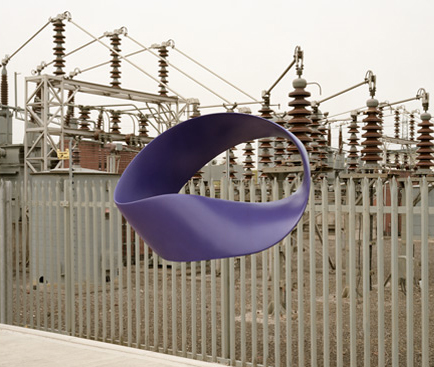Things not to do when researching background info to aid a review of a beautiful box set celebrating 20 years of British electronic music label Warp Records, No. 1: read dedicated messageboards to see what hardcore fans of the label’s ‘classic’ output are saying about it. So I didn’t. Bigtime IDM heads — I’m talking here about the damn fools who birthed the genre name IDM, or ‘intelligent dance music’, in the first place — can be kind of scary and kind of depressing. As hungry for titbits of personal info about their favourite, often pointedly private, producers as any tearful teenpopper, they also have a self-righteousness about their fandom comparable to Comic Book Guy laying into Itchy & Scratchy.
So you can imagine the level of butt-hurtedness when the label that started off releasing a narrow and freshly developing style of music — the ‘bleep’ techno ringing through their Sheffield hometown in the late 80s — started, two decades on, basically putting out whatever it wanted, including indie-rock moneyspinners Grizzly Bear and Maximo Park. There are a number of rejoinders to the grouse that having bands like this on Warp amounts to a dilution of aesthetic, or even (ooh!) a betrayal. Firstly, the fact that it’s not your label, and in the grand scheme of things, being ‘loyal’ to a record label is sort of weird and decadent; secondly, that they had an indie division — Gift Records — in the early 90s, notable for releasing Pulp singles; thirdly, bands such as Broadcast and Battles have done consistently excellent work in the minefield that is incorporating a love of electronics to a guitar music foundation.
It’s more than likely that Steve Beckett — the big man at Warp since 2001, his co-founder Rob Mitchell having passed away that year — became burned out on plugin-heavy oddball computer music at some point, just like many of its fans did. For the best part of the last decade, then, the notion of a ‘Warp sound’ has been more or less meaningless, and acts have tended to have been enticed to the imprint after Beckett heard their output on smaller indies (Battles, !!!, Tim Exile and Flying Lotus all fall into this category), rather than being developed by Warp itelf. Does this matter for you, the listener? Only as much as you want it to.
Given that this set — containing five CDs, five pieces of 10-inch vinyl, a book and a box — sells for £100, maybe you want to actually read about what’s being reviewed here. Let’s start with CD1 of Chosen, ten tracks voted for by fans at warp20.net. The top five are five of the best-known tracks across Warp’s entire discography, and it’s nice that the obscurios got beaten out here, as they’re all stone cold killers. In fact, I’m not even going to broach discussion of numbers one and five, ‘Windowlicker’ and ‘LFO’, other than to note that they are present.
There’s different degrees of stigma attached to the three between them, though. Boards Of Canada’s ‘Roygbiv’ (codeined Kraftwerk meets boom-bap 80s beats) is apparently an obligatory 3am soundtrack at every.single.douchey.house.party.ever, to the point where you suspect weed dealers get given copies to throw in with customers’ orders. Squarepusher’s ‘My Red Hot Car’ (a take on the two-step garage that was rinsing half of London circa its 2001 release, chopped fine and scattered afar by a man high on jazz fusion and Asperger’s) is something of a sitting duck for anyone who wished to grouse about white musicians who reinterpret primarily black genres in a manner that suggests they don’t think it’s, you know, clever enough. And ‘Atlas’ by Battles (Oompa Loompas sing of your impending death to a backing of Pythagorean jackboot music that, as 00s co-option of the schaffel techno microgenre goes, walks arm-in-arm with Rachel Stevens’ ‘Some Girls’) has arguably been a tad tainted by the band playing it in that same ‘let’s wind up the wreckheads by hugely dragging out the build-up’ way at 28,000 festivals in 2007. The extent to which you let this jar with your own enjoyment is, again, up to you.
It doesn’t seem too unreasonable to posit that Beckett’s selections for CD2, and their running order, betray an agenda of ‘look how many different things we do!’. Across 14 tracks we travel from crypto-indie to chill (the adjective, not the genre), techno abstraction to blitzing acid whiplash inducers. Grizzly Bear’s ‘Colorado’, from their Warp debut Yellow House, isn’t at all bad, as Edward Droste repeats “What now?” over sawing, blurry chamber-rock — which makes their present avenue of antiseptic Stingimal Collective eyewash seem all the more stultifying. In a vaguely similar way, Flying Lotus is a character who you sometimes feel smooths his obvious, prodigious production talent into a mush of mid-paced beats waiting for some rhymes; this doesn’t apply to ‘GNG BNG’, which is made up of ridiculously loud drums and what sounds like the results of Jolt Cola being poured into Roland’s range of mid-80s synths. ‘Paroles’, one of two singles on the label by Mike Ink, aka Cologne ingénue Wolfgang Voigt (probably best known for his ambient productions as Gas), hails from 1996 but rocks a breakbeat at a tempo straight out of rave’s heyday five years previous.
Rave was pretty much at a nadir in terms of complete uncoolness around this time, and Warp’s roster of new Jacks — Red Snapper, Jimi Tenor, Mira Calix — didn’t give the impression that Beckett and Mitchell bucked this opinion. Voigt’s awkwardness is a winning quality, though, as much as with Aphex and Squarepusher — talking of whom, here’s their sole collaboration, ‘Freeman Hardy & Willis Acid’ (from Warp’s first milestone collection, We Are Reasonable People), which starts off as atmospheric drum’n’bass, degenerates into lysergic machine chatter and has a scary ending. It’s emblematic of why people get fiercely OCD-ish about this label, and perhaps the least debatable of Beckett’s 14 selections.
Whether Warp are sitting on endless vaults of hidden wonder, and what could potentially have been included on the three Unheard 10-inches, is a matter of conjecture. Aphex claims to literally make music for himself for the most part, and the label are probably no more likely to hear it than you or I; similarly, the mirthsome fanboy bait that is the private-issue Boards Of Canada cassettes will likely only surface as a boxset one day, if at all. BOC open the selection here with ‘Seven Forty Seven’, a droney drift that could have slotted onto pretty much any of their releases. Clark and Plaid both offer solid, if hardly revelatory, electronica sweetmeats; ‘Elecktroids Bonus Circuit’ by Elecktroids, the only fully defunct (likely departed, in fact: Elecktroids was an anonymous project thought to be James Stinson of Drexciya, who died in 2002) artist on this disc, is a short, super-minimal blast of funky Detroit stuff.
When Unheard is good, though, it’s great. It’s hard to believe that the Autechre of ‘Gantz Graf’ and ‘Oval Moon (IBC mx)’ are the same two people: the first, selected by the fans, is an arrhythmic nightmare of granular, dragged-across-gravel digital forbearance, the previously unreleased second an amalgam of blissful, almost proto-trance melodies and spacedust bass fizz. (The only clue as to when it dates from is one’s own intuition; I’d guess early to mid-90s, although it’d be a smirk if they knocked it up a day before the submission deadline.) Nightmares on Wax were generally the least exciting of the Sheffield bleep crew, but sometimes they cracked it, and the horn-heavy ‘Mega Donutz’ — a refix of a track from 1991 — is total funk joy. And Broadcast might actually have cooked up the highlight of the unreleased section: ‘Sixty Forty’ is musically darker and more abrasive than almost all of what has made it onto their albums, vocalist Trish Keenan at the eye of the storm with her requisite blank blackout vacancy, a swelling disquiet of mega-reverbed fuzz and Neubauten-esque metalbash percussion fighting against her resolve.
The two discs of Recreated tracks — 21 currently active Warpees covering whatever takes their fancy from the catalogue — is a cute idea, and one that produces some fine results. Nevertheless, the willingness of a few acts to stay in their comfort zone rankles. Pivot covering Grizzly Bear? Excuse me if I don’t pass out with excitement. Bibio acting as Jed Maxwell to Boards Of Canada’s Alan Partridge? Pretty sure they already know how much of a boner you have for them, dude. Maximo Park tackling Vincent Gallo? Just . . . no thanks. Then again, in principle the idea of Born Ruffians covering Aphex makes me want to headbutt baby rabbits — but they have a Bonzo Dog Band thing going on here (granted, the fact it’s a take on the notably childish ‘Milkman’ gives them a head start) which is hard to hate. Luke Vibert takes an over-respectful punt at ‘LFO’ that just sounds like the original done with modern gear; Autechre, who really are the MVPs of the whole box, immediately show the Cornishman how it’s done with an exacting Godzilla stomp through ‘What Is House?’. British noise disciplinarian Russell Haswell cannibalises obscure early 90s electro posse Wild Planet in a manner that starts off subtly respectful but descends into flesh-flaying inhumanity.
The second Recreated CD is notably more sedate — cynics may prefer ‘pompous’ as an adjective, but if they can’t roll with Mark Pritchard (Jedi Knights, Harmonic 313) and his frail, avant-folk reading of ancient Black Dog number ‘3/4 Heart’, then they lose. One of the label’s most obscure signings, John Callaghan — two singles in ’98 and ’00, then a return to the Max Tundra/Momus-ish eccentronica microscene whence he came — uses Autechre’s ‘Tilapia’ as the skittery underpin for his enunciated, quavering and pitch-altered vocal. Shoegazer-gone-IDM heads Seefeel allegedly cover Maximo Park’s ‘Acrobat’, but it feels more like an homage to the infamous ‘Aphex forgets to remix the Lemonheads and gives them a leftover track in its place’ story, given that this collage of nocturnal creaks and drones have no obvious lineage in Mackem post-punk.
All of which leaves: a typically clever mix CD from prototypical mash-up geezer Osymyso, which reassembles 65 tracks across 66 minutes in brisk and mostly raveable fashion; two one-sided 10-inch records with 25 locked grooves each; and a book featuring artwork from every Warp release, a more exhaustive version of Rob Young’s 2005 tome Warp: Labels Unlimited. What would have been really sweet: a comp of tracks from the various 12-inch singles in purple sleeves, most of which were one-offs — Tuff Little Unit, Rhythm Invention, Circle City (who is now hard trance dork Rob Tissera, fact fans) as well as bigger names including David Holmes and Joey Beltram. Aside from DJ Mujava’s blog-hype smash ‘Township Funk’, released earlier this year, Warp appear to have ceased picking up one-offs, which is a bit of a shame.
Most of this music was probably produced in pressure-free, inauspicious circumstances and some of it will have changed people’s lives. I don’t know if I’d say it did mine, but it was at least a mid-sized cog in the mechanism of change. Full non-surprising disclosure: I was the white kid giggling incredulously at ‘My Red Hot Car’, suffering heavy eyelids during ‘Roygbiv’ and dancing Gary Glitterishly to ‘Atlas’. I class it as research.



